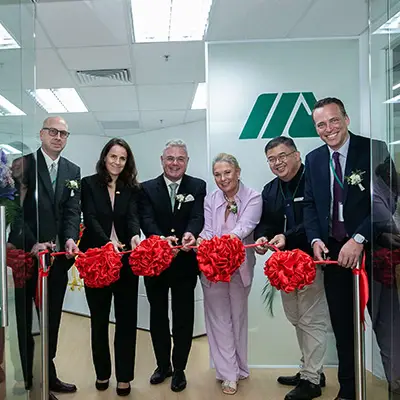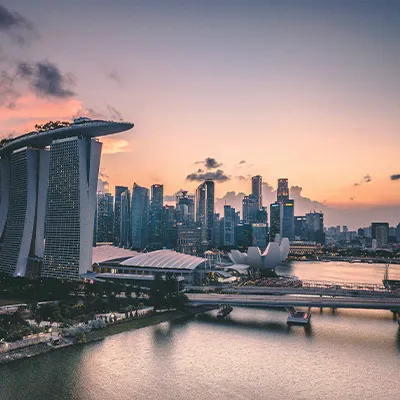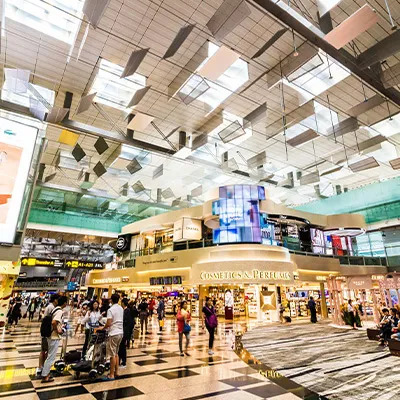WITH the Covid-19 pandemic having brought about a wider acceptance of remote working, Singapore must keep up efforts to remain a vibrant regional hub, observers told The Business Times.
While the regional hub model has not lost its relevance, further economic reopening is critical in helping the Republic maintain its status as one, they said.
Amid the pandemic, working from home was the default for most companies for months. But from April 5, up to 75 per cent of a company's workforce has been allowed to return to the workplace at any one time.
It remains to be seen if remote working persists as a new normal. One question has been whether regional headquarters are still relevant, now that Covid-19 has proven the feasibility of remote working.
Harvey Neo, senior fellow and programme head at the Singapore University of Technology and Design's Lee Kuan Yew Centre for Innovative Cities, sees it as plausible that multinationals may move away from the large regional HQ model.
But this is one of several fundamental shifts that the office market has been undergoing, "which the pandemic merely accelerated", he added.
The "splitting" of large HQs into smaller ones has transformed the understanding of what it means to be a business hub, and could even mean more firms setting up in Singapore, albeit on a smaller scale, he said.
Analysts agree that predictions about the demise of the workplace have been premature.
"Despite some early predictions that we might transition completely to a remote work environment for all services, it is evident that many business service firms are now experimenting with some form of hybrid working structure and believe that a certain amount of physical presence is important for collaboration, teamwork and productivity," said Walter Theseira, an economist at the Singapore University of Social Sciences.
Chris Archibold, JLL Singapore country head, said the pandemic has in fact highlighted Singapore's viability as a base.
"In terms of Singapore as a regional hub, we do not see any change to the benefits that occupiers see in locating to Singapore," he said.
"If anything, the increasing political and pandemic risks in other countries versus the stable government and effective pandemic management further shine a spotlight on Singapore as a great place to set up base to assess regional opportunities or invest," he added.
Cushman and Wakefield Singapore head of research Wong Xian Yang does not see "a huge risk" that the age of large regional headquarters might be over. "Among other factors, Singapore's position as a business hub is underpinned by its supply of talent which is highly sought after by multinationals," he said.
While remote working does open up global pools of talent, there remain challenges to having international remote teams, he added: "If not implemented correctly, innovation and decision-making might suffer."
CBRE co-head of office services David McKellar noted that firms are still establishing or expanding their presence here, with recent moves such as Zoom setting up a research and development centre, and ByteDance enlarging its footprint.
Having a physical office remains important to companies, he said. In a survey by CBRE Asia Pacific, about two-thirds of respondents intend to allow remote working for no more than one or two days per week.
Irvin Seah, DBS senior economist, said the different timezones for different markets makes it a "necessity" for companies that want to be plugged into the Asian market to be physically in Singapore.
"Some jobs, however, could remain in the home country because these jobs can be done remotely and may not require a constant dialogue between their home office and the regional office," he explained.
Lee Chiew Chiat, government and public services industry leader at Deloitte Southeast Asia, said observations have suggested that task-based work and transactional activities fare better remotely than activities that involve strategy and innovation, where face-to-face brainstorming and intense discussion could be more beneficial. As such, Singapore may see an attrition of task-based and transaction work to other locations that have a lower cost.
"This would position Singapore, and companies in Singapore, to capture opportunities that are of higher value to remain competitive - for example, in areas of automation, intelligence and value-added services - which would in turn mean that workers would have to shift competencies and mindsets to take advantage of these opportunities," he said.
With their use of technology and focus on innovation, digital, and professional services, regional HQs tend to create more PMET (professionals, managers, executives and technicians) roles, said National Trades Union Congress assistant secretary-general Patrick Tay.
"With the pandemic and the new ways of working in the next normal, especially with more people working from home or working from anywhere, there will be a rethink by some companies," Mr Tay added.
But Singapore still has a good value proposition, with its highly skilled workforce, strong rule of law and governance framework, efficient connectivity, and infrastructure, he pointed out.
And while the rise in remote working may mean lower demand for office space, there is the countervailing trend of workplaces being redesigned for lower density, said analysts.
Wee Wei Ng, Singapore country managing director at Accenture, said he sees an increasing trend towards flexible, mixed-use office and commercial spaces, with the pandemic also accelerating the rise of digital shopfronts.
Mr Wong of Cushman & Wakefield expects the hybrid model to persist, with workers having flexibility but returning to the office for collaboration. The impact on office space demand may not be as large as expected: perhaps a 10 per cent decline, he said.
JLL's view is that many occupiers have yet to reach a decisive conclusion on the use of space. Mr Archibold expects the space savings from remote working to be offset partly "by employers redesigning their spaces to encourage people to return to the office, and increase their productivity in a human-centric environment".
Even before Covid-19, there were long-term plans to decentralise the central business district and convert some commercial spaces to other uses, noted the analysts.
Architect and National University of Singapore adjunct professor Tay Kheng Soon thinks that there could be a more dramatic halving of office space, with the CBD becoming much more residential.
Yet multinational corporations will still want to have HQs here to tap the growth of Asean, he said. "Sociability in the workplace is a need," he added, expecting a half-half split between remote working and offices.
Having employees in a physical space together creates a corporate culture while fostering a sense of belonging, something that remote working does not give, said David Sandison, Singapore practice leader and head of tax at Grant Thornton.
However, he concedes that remote working could make it "less compelling" for people to be based here.
Assoc Prof Theseira said that physical meetings may be more critical for making new business deals, whereas there is great potential for routine meetings to remain online.
"It will likely still be important to be physically located in Singapore as a hub, since being in the same time zone, and being able to travel quickly to resolve issues that cannot be fixed remotely, will be an advantage.
"But I think we will need some restoration of travel sooner rather than later; the risk is that if there really are indefinite difficulties to travelling, there may not be much advantage to having a Singapore hub after all," he said.
This could be why Singapore is already taking steps to further relax its Covid-19 rules, in view of the low community cases, even though only about 10 per cent of the population is fully vaccinated against Covid-19. Talks on establishing travel bubbles also continue in earnest.
DBS' Mr Seah said: "It will help to enhance our overall competitive edge if we are able to demonstrate the ability to keep the pandemic at bay and allow economic activity to resume."
© 2021 Singapore Press Holdings
This article was written by Janice Heng from The Singapore Business Times and was legally licensed through the Industry Dive publisher network. Please direct all licensing questions to legal@industrydive.com.







